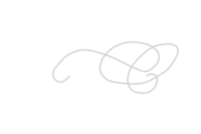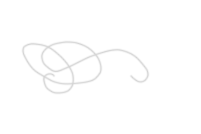A lacuna is an unfilled space or interval; a gap or missing part; a hiatus; a missing portion in a book or manuscript.
*
The potential benefit of analyzing Bookswept’s lacuna would be to arrive at a conclusion that prevents it from happening again. Beyond that, such self-examination risks wasting even more time, when all there is simply left to do is do. I greet this space with just enough shame to inspire determination lest another four seasons pass with few words as evidence.
*
At the moment I work at a book club of sorts, its finest feature a library with over 10,000 books about books, books on California, and fine press books printed in California. They are cataloged and arranged in a way that evidently made sense to the only librarian the books have ever known, who died just six months before I began my employment. Two slim volumes have held my attention the longest: John Steinbeck’s How Edith McGillcuddy Met R.L.S (1943) and Joan Didion’s Telling Stories (1978). Describing the early years of her writing career when she wrote photo captions for Vogue (“the monthly grand illusion”), Didion writes, “I learned a kind of ease with words . . . a way of regarding words not as mirrors of my own inadequacy but as tools, toys, weapons to be deployed strategically on a page.”
*
I take the train into San Francisco and for the first time I experience the city as a purely practical destination, the streets as a means to get to an office. The city used to feel inaccessible, always suggesting that it was too busy to get to know me, but I think we’ve grown accustomed to each other.
*
The sidewalks are now full of familiar faces, like the valet in the top hat outside of the Marriott, the girl wearing a red bow tie who turns right on Harrison Street, and the impossibly friendly Jehovah’s Witnesses with tight grips on their pamphlets. I once caught a man on pamphlet duty lean over to whisper something into his comrade’s ear, who in response leaned his whole body back in laughter, louder than anyone should be laughing at 7 a.m. in the cold. I can only assume that those pamphlets indeed hold all that is good and holy, as promised.
*
Buildings replace trees and pieces of trash replace leaves, and on one morning the wind was so strong that trash swirled up into the air, and for half a second a few scraps circled right above my head like a crown.
*
I’m currently reading Barbara Kingsolver’s The Lacuna, in which I’m reminded “nothing is ever what they say, and no one holy one hundred percent.”

 Notes
Notes

